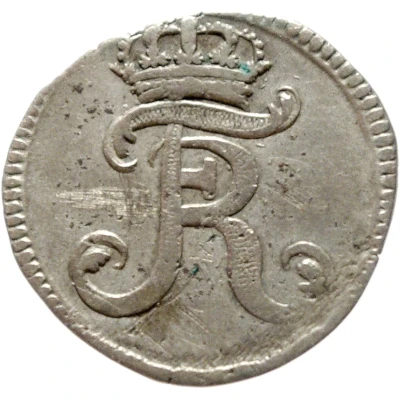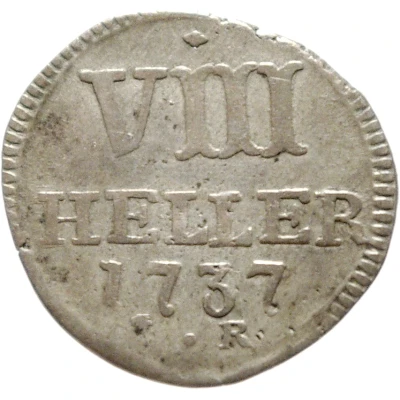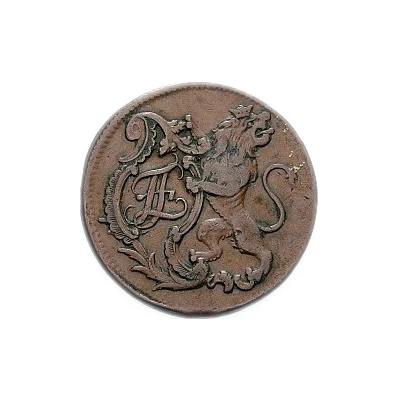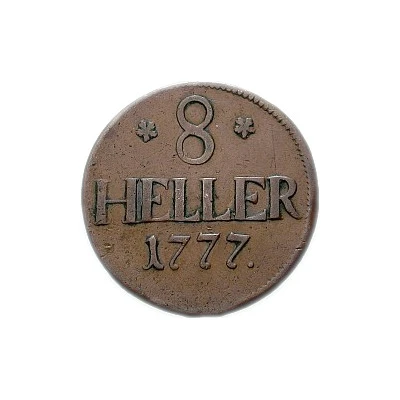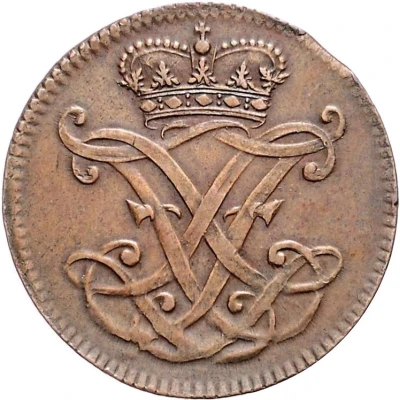
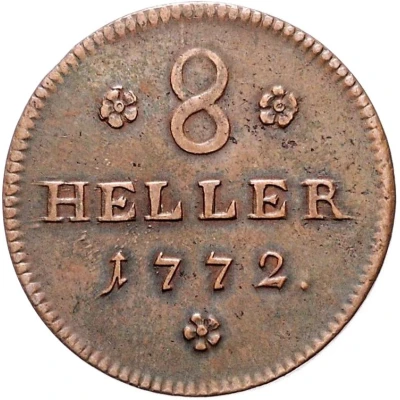

© Münzenhandlung Harald Möller GmbH
8 Heller, 1⁄48 Thaler - Frederick II
1772 year| Copper | 16.4 g | 32 mm |
| Issuer | Landgraviate of Hesse-Cassel (Hesse-Cassel) |
|---|---|
| Landgrave | Frederick II (Friedrich II) (1760-1785) |
| Type | Standard circulation coin |
| Year | 1772 |
| Value | 8 Hellers (1⁄48) |
| Currency | Thaler |
| Composition | Copper |
| Weight | 16.4 g |
| Diameter | 32 mm |
| Shape | Round |
| Orientation | Medal alignment ↑↑ |
| Demonetized | Yes |
| Updated | 2024-10-05 |
| Numista | N#53007 |
|---|---|
| Rarity index | 94% |
Reverse
Value, date
Script: Latin
Lettering:
*8*
HELLER
1772
*
Comment
The Landgraviate of Hesse-Kassel : spelled Hesse-Cassel during its entire existence, was a state in the Holy Roman Empire that was directly subject to the Emperor. The state was created in 1567 when the Landgraviate of Hesse was divided upon the death of Philip I, Landgrave of Hesse. His eldest son William IV inherited the northern half of the Landgraviate and the capital of Kassel. The other sons received the Landgraviate of Hesse-Marburg, the Landgraviate of Hesse-Rheinfels and the Landgraviate of Hesse-Darmstadt.During the Napoleonic reorganisation of the Empire in 1803, the Landgrave of Hesse-Kassel was elevated to an Electorate and Landgrave William IX became an Imperial Elector. Many members of the Hesse-Kassel House served in the Danish military gaining high ranks and power in the Oldenburg realm due to the fact that many Landgraves were married to Danish princesses. Members of the family who are known to have served Denmark-Norway include Prince Frederik of Hesse-Kassel, Prince Frederick of Hesse-Kassel, and Prince Charles of Hesse-Kassel. It was later occupied by French troops and became part of the Kingdom of Westphalia, a French satellite state. The Electorate of Hesse was restored at the end of the Napoleonic Wars, though by that time there was no longer an emperor to elect.
Interesting fact
One interesting fact about the 8 Heller, 1/48 Thaler coin from Landgraviate of Hesse-Cassel (Hesse-Cassel) made of Copper weighing 16.4g is that it was minted during the reign of Frederick II, also known as Frederick the Great, who was a prominent figure in European history and known for his military conquests and administrative reforms.
